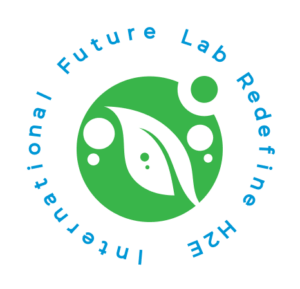
The pioneering
GREEN HYDROGEN
research lab
We are bringing together interdisciplinary experts from 9 countries, and 3 different technologies, as well as the public that aims to break through technology barriers for the transition into a carbon neutral future.
PROJECT
With REDEFINE we couple thermo-, bio- and electrochemical technologies for green hydrogen production and utilization trying to solve the biggest challenges connected to these individual technologies in order to achieve high flexibility, high energy and resource efficiency as well as economical profitability.
WORK PACKAGES
The Future Lab REDEFINE H2E aims at the development of a full circular hydrogen economy in a single integrated concept with only three major building blocks. This ingenious interplay of electrically-assisted gasification (e-Gas), reversible solid oxide cells (rSOC) and biocatalytic synthesis (Biocat), framed by different System-Level Aspects and Modeling (SLAM) enables the ideal representation of the full hydrogen value chain at highest possible efficiency and flexibility.
e-Gas
Providing green hydrogen from biogenic waste materials
Biocat
Biocatalytic synthesis
rSOC
Producing large amounts of pure hydrogen from excess renewable electricity
INNOVATION
The research carried out in the future lab will not only advance the complete hydrogen value chain to the next level, but also make key contributions to strengthen the competence portfolio applying next-generation scientific techniques and tools. With this mindset, we will increase the international visibility of Germany as the place for hydrogen research and set new impulses for trendsetting climate protection innovations for German industry.

